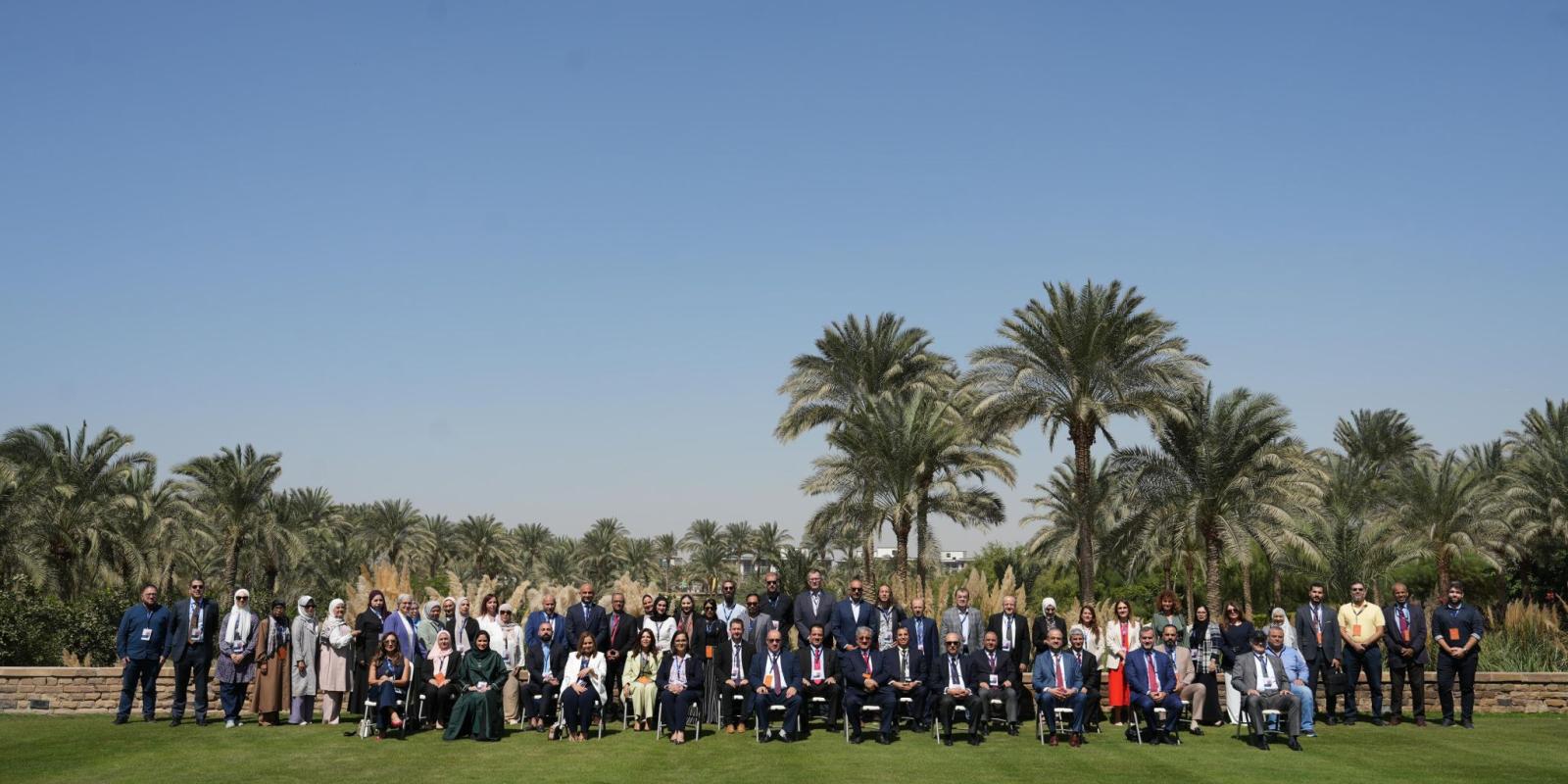
Onsi Sawiris School of Business Hosts International Conference on Sustainable Business and Technology 2025
Onsi Sawiris School of Business recently hosted the International Conference on Sustainable Business and Technology (ICSBT’Cairo2025), organized by the EuroMid Academy of Business and Technology.
The two-day gathering brought together leading academics, business leaders, and policymakers from around the globe to explore how innovation and technology can shape a more sustainable future.
Collaboration at the Core
In his opening remarks, Sherif Kamel, conference chair and dean of Onsi Sawiris School of Business, emphasized that ICSBT’Cairo2025 was “more than an academic gathering; it’s a hub for dialogue, ideas, and collaboration.” He highlighted that while technological progress is transformative, it is human ingenuity and creativity that ultimately drive meaningful change. Echoing this message, Maha Mourad, professor of marketing and associate dean for undergraduate studies and administration at Onsi Sawiris School of Business as well as the chair of the organizing committee, set the stage for dialogue, knowledge exchange, and collective problem-solving across disciplines and industries.
Education as a Driver of Innovation
A highlight of the discussions was the keynote by H.E. Prof. Abdulla Al Hawaj, founding president of Ahlia University, who reflected on the entrepreneurial vision behind establishing Bahrain’s first private university. He underlined the transformative role of higher education in developing innovation and global partnerships, reminding participants that “you will never regret a penny you spend investing in education.” His message resonated with the broader conference theme of leveraging academia to drive societal and economic progress. The conference was also attended by professor Allam Hamdan, dean of the college of business and finance at Ahlia University in Bahrain and the chair of the scientific committee.
Shaping the Future of Higher Education
Speakers and panelists throughout the conference examined how higher education institutions must evolve in response to new generations of learners and rapid technological shifts. Discussions highlighted how Generation Alpha views technology and artificial intelligence as natural extensions of themselves, calling for universities to adapt through gamified learning, storytelling, and experiential approaches. At the same time, strong governance, industry integration, and digital transformation were highlighted as essential for ensuring relevance, impact, and global recognition.
Innovation, Technology, and Ethics
This year’s conference featured 49 in-person paper presentations and 12 speakers, attracting a total of around 80 participants. The diversity of participation reflected the event’s international reach, with speakers representing Egypt, Bahrain, Croatia, the UAE, Jordan, and Saudi Arabia. Presenters came from a broad range of countries, including Hungary, Sweden, Malaysia, Qatar, Romania, India, and others, while workshop attendees joined from Egypt, Bahrain, Jordan, Hungary, Croatia, Saudi Arabia, Palestine, the UAE, and Malaysia.
Research presentations and expert dialogues expanded the conversation into business, policy, and societal domains. Topics ranged from artificial intelligence in human resources and sports analytics to green financing, fintech in emerging markets, and the Internet of Things (IoT) in food security. Ethical frameworks and responsible governance were recurring themes, emphasizing that sustainability and innovation cannot be pursued in isolation from values of integrity, accountability, and inclusivity.
Recognizing Research Excellence
The conference also celebrated outstanding scholarly contributions. Yasmine Eissa, assistant professor of economics at Onsi Sawiris School of Business, received the Best Presentation Award for her research on making trade policy more innovation-friendly. The Best Paper Award was presented to Loai Alnemer and Ali Rodan from the University of Jordan for their work on advanced multimodal learning in additive manufacturing.
From Ideas to Practice
Practical workshops, organized by Onsi Sawiris School of Business, enriched the academic exchange with actionable insights . Moataz El Helaly, associate professor at the Youssef Nabih Department of Accounting, Onsi Sawiris School of Business, led a session on how researchers can responsibly leverage artificial intelligence while preserving academic rigor, authenticity, and ethics. Meanwhile, Ahmed Tolba, professor of marketing and chair of the Heikal Department of Management, Onsi Sawiris School of Business, guided participants on writing impactful case studies for publication.
A Platform for Sustainable Impact
ICSBT’Cairo2025 emphasized the shared responsibility of academia, business, and policy to drive sustainable transformation. By driving dialogue on innovation, ethics, and collaboration, the conference highlighted that the challenges shaping the future of business and technology cannot be solved by a single discipline alone.
